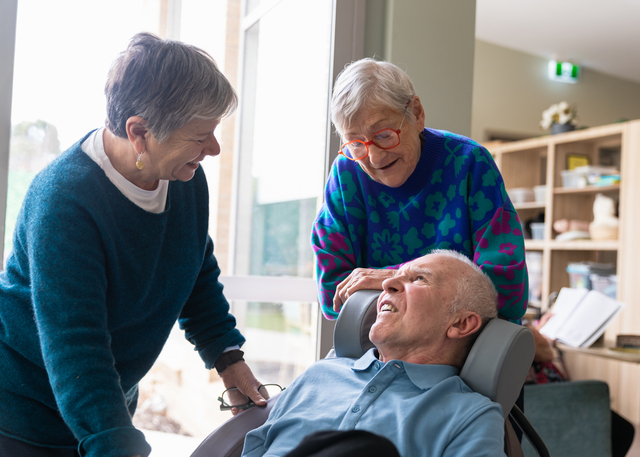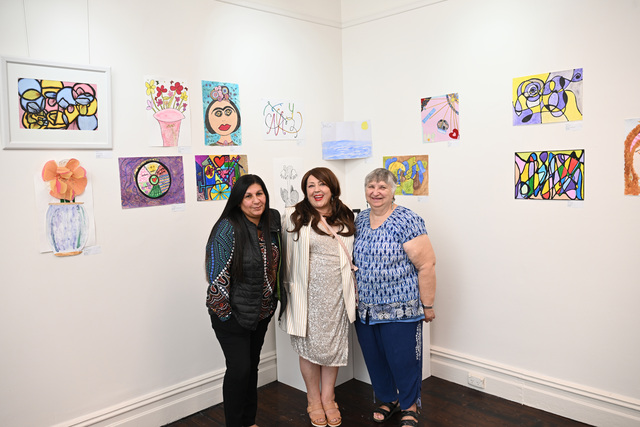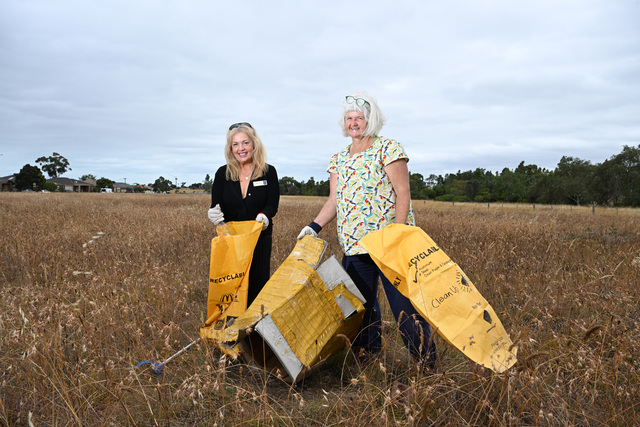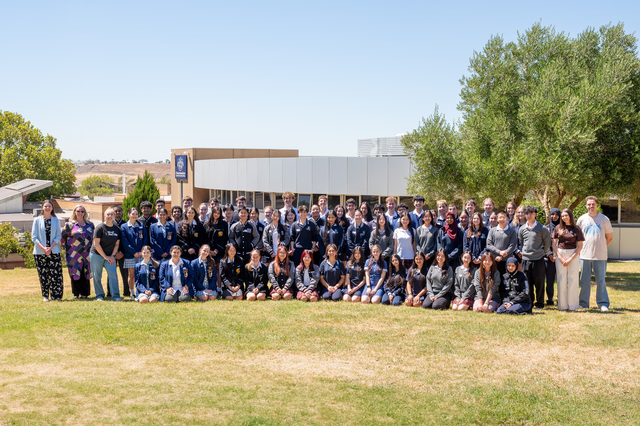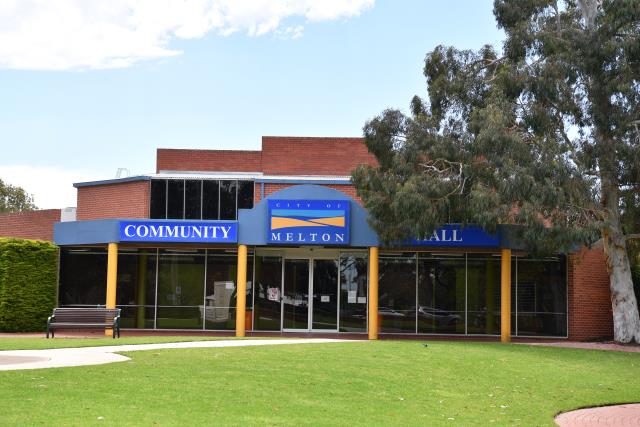Lady Lourdes House in Sunshine North is providing essential care for dementia patients, but those affected say there needs to be more support services available.
September 16-22 is Dementia Action Week. The 2024 theme, ‘Act Now for a Dementia-Friendly Future’, emphasises the importance of building awareness and acceptance of dementia in the community.
The family of a man living with dementia is calling for more specialised dementia care units to help improve individuals’ wellbeing and slow progression of the disease.
Bernie Desormeaux, aged 74, was diagnosed with dementia 10 years ago.
From the beginning, his family – partner Amelia, daughters Lilly and Olivia, and mother-in-law Mary struggled to find the support he and the family needed.
“It was a difficult journey. Not just the financial constraints and administrative burdens of navigating a very complicated system, but also the emotional toll,“ Lilly said.
“Our hearts go out to anyone struggling with the complexity of the system and those without the resources that we luckily accessed.”
After numerous stays in aged care homes that didn’t suit Bernie’s needs, his health suffered.
Things turned around with Dementia Australia support and their recommendation to the award- winning specialised dementia unit, Lady Lourdes House, part of St Bernadette’s Aged Care Residence in Sunshine North, run for-purpose aged and disability services organisation VMCH.
The home is purpose-designed for up to nine residents who experience very severe symptoms of dementia.
Residents are offered up to 12 months’ intensive, supportive care to help them manage their symptoms so they can transition into mainstream aged care.
Lady Lourdes is one of three federal government run Specialist Dementia Care Programs (SDCP) in Victoria.
Since it opened in 2020, the team has cared for 21 residents and successfully transitioned 11 to its mainstream residence, including Bernie.
“There was a quietening of demeanour, less anxiety; we felt he relaxed,” Amelia said.
“Physically he improved, putting on weight. The relationships staff build with the families, the gentleness and empathy that they show to the residents and to us, is just extraordinary.”
Lady Lourdes unit co-ordinator Sue Adhikari said the staff are highly trained and receive ongoing education.
“We utilise non-pharmacological interventions as a first line of action and work on minimising people’s triggers to help manage behavioural and psychological symptoms of dementia,” she said.
“Ultimately, our success lies in giving residents time and maintaining a consistent approach with a familiar face. We provide them with person-centred care and treat everybody as unique individuals.”
When the time recently came for Bernie to transition to the mainstream residence, the family had mixed emotions.
“We didn’t want dad to leave because we wanted him to have the best care, but we were also conscious that Lady Lourdes has a waiting list, and we didn’t want anyone else to miss out,” Lilly said.
Amelia hopes more families in the future can access specialised units like Lady Lourdes.
“We couldn’t recommend it highly enough, for the dignity engendered and the sense of wellbeing created for those living with dementia, and for their families, knowing their loved one is safe, comfortable and seen.”

